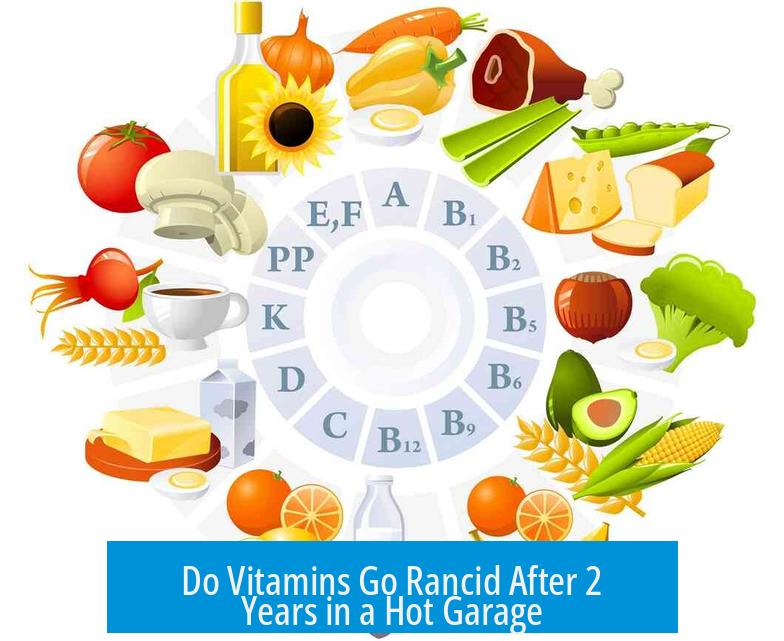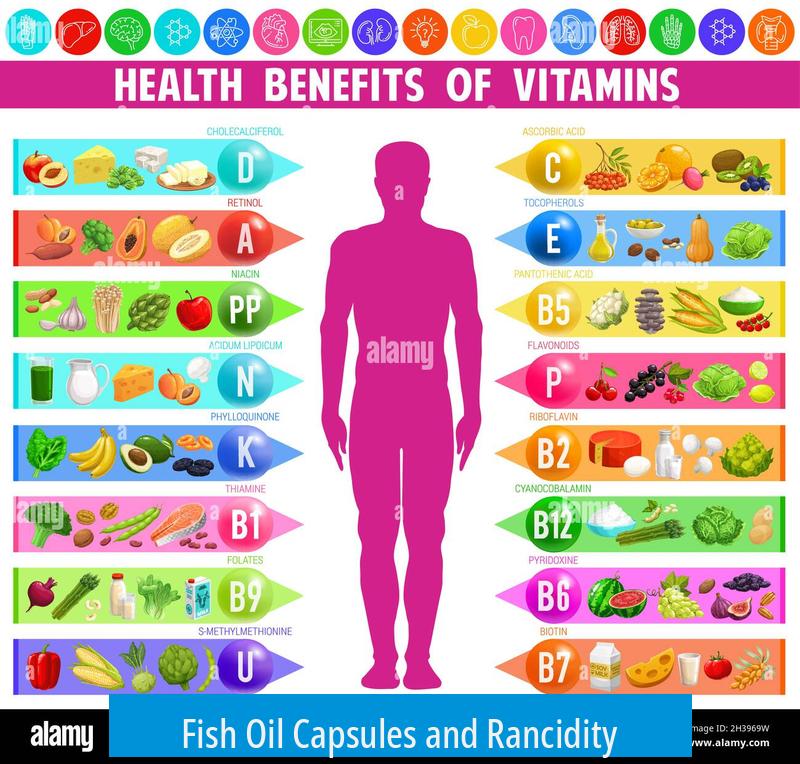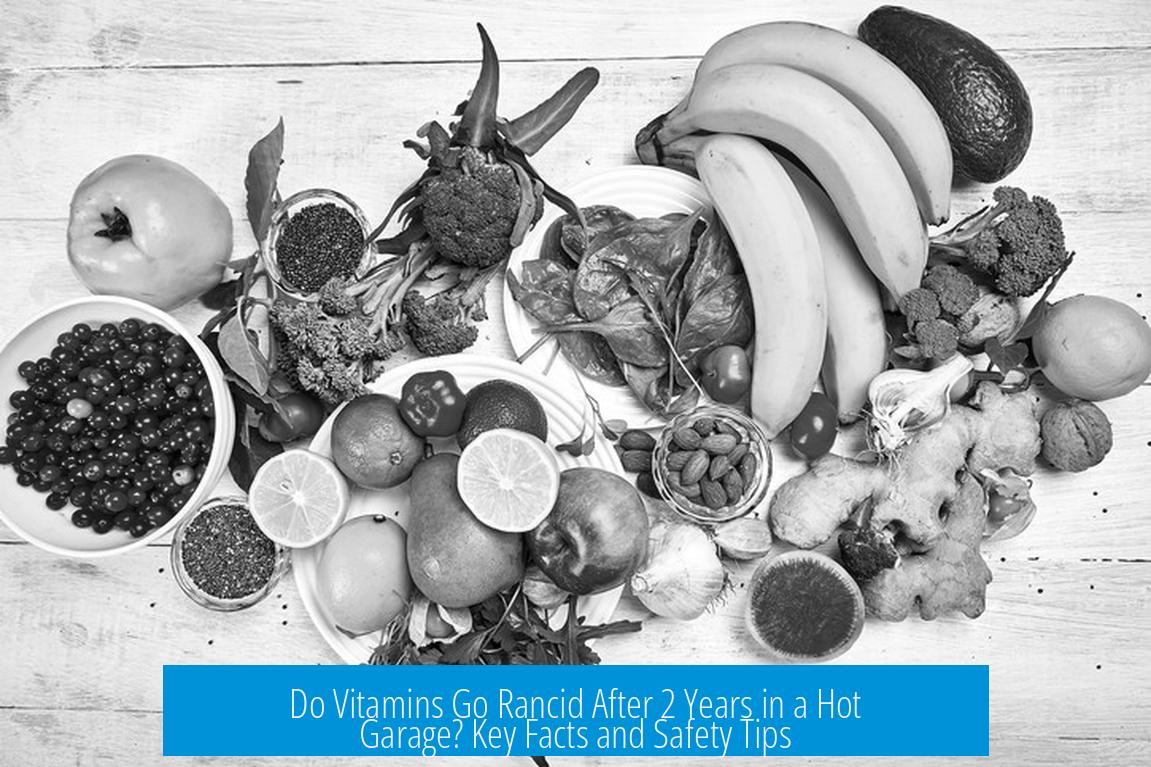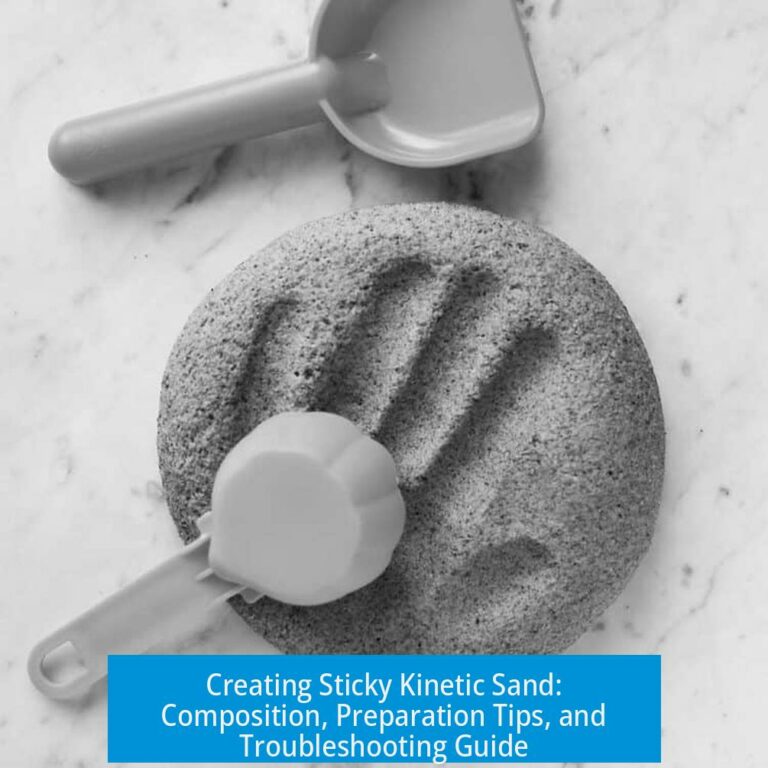Do Vitamins Go Rancid After 2 Years in a Hot Garage?

Vitamins stored in a hot garage for two years generally do not go rancid in the traditional sense, but their potency and effectiveness can significantly decrease, especially if the container is unsealed or the vitamins include sensitive oils like fish oil. Unlike perishable food, most vitamins, especially hard tablets, do not spoil or become toxic over time. Instead, they typically lose strength, reducing the expected health benefits. However, some vitamin forms and supplements may degrade or oxidize when exposed to heat, affecting their quality and safety.
General Stability of Vitamins
Most multivitamins in hard tablet form remain stable well past their expiration date. Vitamins are not food products and usually don’t become unsafe or toxic after aging.
- Hard tablets can last beyond their printed expiration.
- Loss of potency occurs before safety concerns arise.
- Sealed packaging helps maintain vitamin integrity even in suboptimal conditions.
Therefore, a vitamin bottle stored in a garage, even if warm, is unlikely to become harmful if the container stayed sealed and the vitamins show no visible signs of spoilage.
Effect of Heat and Storage Conditions
Heat accelerates the chemical breakdown of vitamins but usually does not cause dangerous changes. Most vitamins tolerate brief temperature fluctuations without severe damage.
Temperature impact on vitamins is generally minimal if they remain sealed and free of moisture.
Garages can reach high temperatures in summer, sometimes exceeding recommended storage levels. Despite this, sealed vitamin capsules and tablets are often resilient to moderate heat exposure. The vitamins may lose some effectiveness but likely stay safe.
Key factors influencing vitamin stability in a hot garage:
- How high the temperature actually gets.
- Whether the supplement bottle was airtight.
- Presence of humidity or sunlight.
- Type of vitamin or supplement (some are heat-sensitive).
In practice, unopened bottle storage in a hot garage for two years may reduce vitamin potency but usually won’t render them unsafe.
Fish Oil Capsules and Rancidity

Fish oil capsules are an exception that deserves special attention. These supplements contain Omega-3 fatty acids that are prone to oxidation and rancidity, especially under heat.
- Omega-3 oils oxidize more readily than synthetic vitamins.
- Oxidized fish oil smells and tastes unpleasant, often like stale or “fishy” odors.
- Visible discoloration or capsule deformation indicates spoilage.
Oxidized fish oil consequences: Consuming rancid fish oil does not typically cause acute toxicity but reduces health benefits. It can cause gastrointestinal discomfort and unpleasant burps.
Reputable brands test for contaminants such as heavy metals before bottling. Mercury levels do not increase with storage time, so contamination risk does not rise in a stored bottle.
Toxicity and Safety Considerations
Most vitamins lose effectiveness rather than become toxic after expiration or improper storage. Vitamin degradation mainly refers to reduction in the active nutrient form.
| Supplement Type | Risk of Toxicity After Storage | Notes |
|---|---|---|
| Multivitamin tablets | Low | Potency drops but no known toxicity. |
| Fish oil capsules | Moderate | Risk of oxidation, reduced benefits, possible gastrointestinal discomfort. |
| Other medications (e.g., tetracyclines) | High | Some drugs turn toxic; vitamins generally safe. |
Improper storage of medications like antibiotics can be dangerous, but vitamins rarely pose toxicity risks.
Practical Advice for Stored Vitamins
Before using vitamins stored in questionable conditions, inspect them carefully. Check for these signs:
- Any mold growth inside the bottle.
- Strange or rancid smells, especially from oil capsules.
- Discoloration or physical deterioration of tablets or capsules.
If the vitamins appear normal and are within or slightly past the expiration date, they are likely safe but may be less effective.
Consult a pharmacist or healthcare provider if unsure about supplement quality.
Summary of Vitamin Storage in Hot Environments

- Hard vitamin tablets stored in sealed containers can last beyond 2 years even in warm garages.
- Potency reduces over time, especially with heat exposure, but harmful effects are rare.
- Fish oil capsules are susceptible to oxidation and rancidity if stored in heat for prolonged periods.
- Consuming rancid fish oil causes reduced benefits and minor digestive issues rather than toxicity.
- Inspect supplements visually and by smell; discard if suspicious.
- Seek professional advice when in doubt.
Closing Notes
The key concern with vitamins stored in a hot garage for two years is the loss of potency, not the development of rancidity or toxicity—except for oil-based supplements like fish oil. Proper storage in sealed, cool conditions is best to maintain supplement quality.
Maintaining realistic expectations about supplement efficacy over time can guide whether to retain or replace old vitamins.
Do Vitamins Go Rancid After 2 Years in a Hot Garage?
In short: Most vitamins, especially hard tablets, don’t actually go rancid after sitting for 2 years in a hot garage. They mainly lose potency rather than becoming unsafe. But hold on, the story’s a bit more nuanced—like all good things worth exploring.
Let’s unpack this with care, because your health supplements might be silently aging away on that dusty shelf—and you’re wondering if they’re still worth popping or if they’ve turned into expired little villains.
General Stability of Vitamins: Hard Truths and Softened Tablets

Contrary to popular belief, vitamins in hard tablet form are surprisingly resilient. Most of these sunshine-loving tablets last well beyond their stated expiration dates. Imagine them as the tortoises of the supplement world—slowly losing potency but steadily hanging in there.
Vitamins lose potency, not safety.
This means that rather than turning into hazardous hazards, vitamins simply become less effective. If you’re taking an expired vitamin C pill stored in a garage hotter than a summer barbecue, you might not get much of the immune-boosting punch you expected—*but it’s unlikely to poison you.*
That said, the safety and stability of vitamins depend on a few key factors:
- Were those vitamins kept before their “best before” date?
- Did their container remain sealed, protecting them from air and moisture?
- And crucially, did the garage really get hot enough—and for long enough—to stress those vitamins?
Because if your garage fluctuates wildly, with temps nudging upwards of 100°F (38°C) or more during summers, things could change.
The Heat Factor: How Hot Is Too Hot?
Keep this in mind: vitamins aren’t living creatures—they don’t sweat or melt (well, at least the hard tablets don’t). Their chemical structure can withstand some heat. Unless temperatures are constant and scorching, damage remains limited.
The temperature impact on vitamins is usually minimal.
Think of that bottle sealed tight in the garage as a stubborn hermit crab. It remains pretty much intact, hiding inside its protective shell. Moreover, unless you see mold or weird discolorations, you’re probably okay. But we all know garages can get pretty toasty.
Now, if your vitamins are in soft gels or liquids, things shift. Some supplements contain oils or other compounds that are more sensitive to oxidation—more on that soon.
Fish Oil Capsules: The Delicate Darlings at Risk
If your supplement stash includes fish oil capsules, prepare for a different story. These guys are the drama queens of the vitamin cabinet.
Fish oil capsules are much more prone to oxidation, aka going rancid.
Oxidation is like the fish oil capsule’s version of a bad Friday night—chemical exposure to oxygen starts breaking down the oils. This not only significantly reduces the valuable Omega-3 content but can cause unpleasant side effects like nasty fishy burps (you’ve been warned) and digestive discomfort.
Curious if your fish oil has jumped the shark? You don’t need a lab test. Just perform the classic sniff test. If it smells off, like spoiled fish or a funky chemical odor, toss it out. Discoloration is another red flag. This is a classic case where storage temperature matters more.
Fish oils from reputable brands often undergo rigorous testing to ensure purity, including checks for heavy metals like mercury. And, fun fact: mercury doesn’t just appear over time. It won’t suddenly spike by sitting in a hot garage, so you can breathe easy on that.
Are Expired Vitamins Toxic? Debunking the Fear

Most vitamins aren’t likely to become toxic after expiration. The main issue is diminished potency. They simply don’t work as well.
But a little caution: certain medications (like tetracyclines) do pose toxicity risks when expired. Thankfully, vitamins aren’t on that list. You won’t find your multivitamins plotting to harm you.
Sealed vitamins mainly break down into less potent compounds, not harmful ones.
So, swallowing an expired vitamin might mean you’re wasting money and effort, but not seriously endangering yourself.
Practical Wisdom: What Should You Do?
First, inspect your bottles. Look for mold, discoloration, or any weird smells. If anything seems off, better safe than sorry—discard those.
If you’re truly unsure, a quick consultation with your pharmacist can provide personalized advice. Pharmacists love these “Is it still good?” questions.
And let’s be honest—if your relative religiously pops those dusty vitamins without ever refreshing the stock, it’s fair to ask: Why keep taking potentially ineffective pills? Sometimes, simply restocking can yield great benefits.
Also, remember that many people store supplements in kitchens or bathrooms, which can get warm but usually not as hot as a garage in summer. Temperature fluctuations and humidity in these common spaces can affect vitamin quality too.
Summary: What’s the Verdict on Vitamins in Hot Garages?
| Vitamin Type | Effect of 2 Years in Hot Garage | Safety Risk? | Action |
|---|---|---|---|
| Hard Tablets (e.g., multivitamins, Vitamin C) | Potency decreases, but mostly stable if sealed and no mold | Low | Check smell and look, probably safe but less effective |
| Soft Gels or Oil-Based Vitamins (e.g., Fish Oil) | Likely oxidized, rancid, reduced Omega-3 content | Moderate (digestive discomfort, loss of benefit) | Sniff test, discard if rancid smell or discoloration |
Bottom line: If you find a sealed bottle of your tried-and-true vitamins sitting quietly in a hot garage for two years, don’t panic. Most tablets are still okay but may not deliver the punch they once promised. Fish oil capsules? They’re probably best tossed and replaced.
So, the next time you rummage through your vitamin stash in a warm garage, know that your efforts to stay healthy aren’t wasted, but maybe it’s time to restock and keep those supplements in cooler, drier spots. Your body—and your taste buds—will thank you.
Can vitamins go rancid after being stored for 2 years in a hot garage?
Hard tablets usually do not go rancid. They lose potency over time but generally stay safe. Heat may reduce their effectiveness but does not cause them to spoil like food.
Are fish oil capsules more likely to go bad in hot storage?
Yes, fish oil is prone to oxidation and can become rancid. Heat speeds this process, causing unpleasant smells and reduced omega-3 content. If it smells off or looks discolored, it should be discarded.
Is it safe to consume vitamins stored in a hot garage beyond expiration?
Vitamins typically lose potency, not safety, after expiration. If sealed and mold-free, they are usually safe but may not be effective. Always check for signs of spoilage before use.
How can I tell if fish oil supplements stored for years are spoiled?
Open the capsule and smell it. A rancid or fishy odor indicates spoilage. Discoloration and changes in texture are other warning signs that the fish oil is no longer good.
Does storing vitamins in heat cause toxic effects?
Most vitamins break down into less effective compounds, not toxic ones. Exceptions are rare and do not include standard vitamins. Fish oil rancidity causes discomfort but is not toxic in low amounts.





Leave a Comment